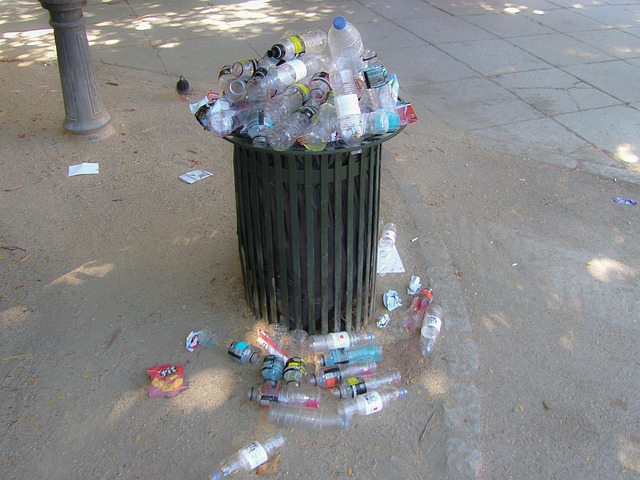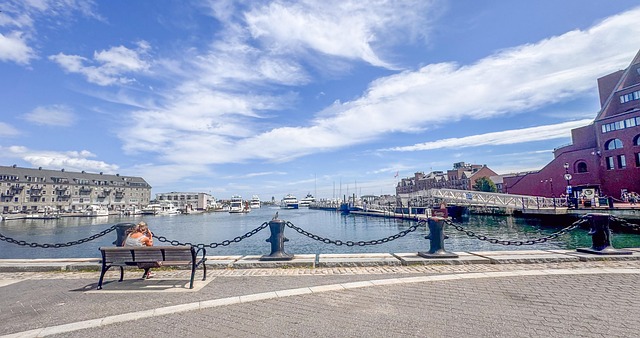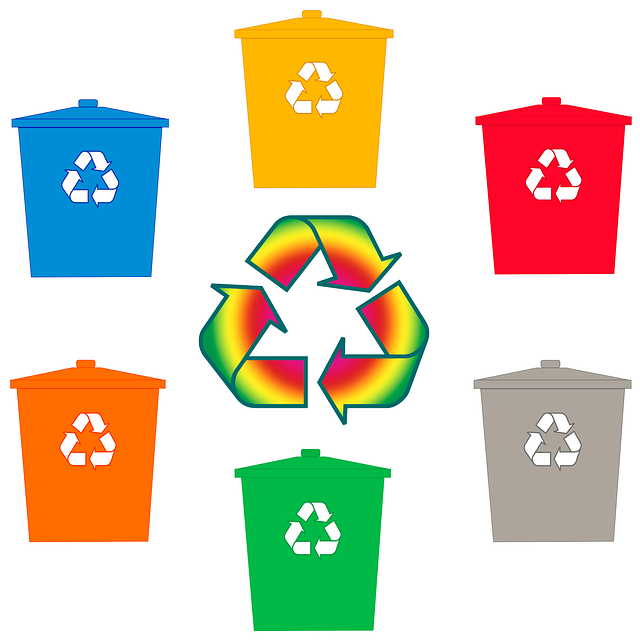Boston aligns with the NYS electronic recycling law through free drop-off programs, charity pick-up initiatives, and training for workers. These efforts promote proper e-waste disposal, reduce environmental impact, and encourage a circular economy, setting an example for nationwide environmental stewardship. Before participating, residents should properly prepare their electronic devices according to NYS directives.
In an era where technology advances at a rapid pace, e-waste accumulation has become a pressing environmental concern. Boston, recognizing this challenge, has embarked on innovative charity pick-up initiatives for electronic waste (e-waste). This article explores the intersection of sustainability and community engagement through the lens of the NYS Electronic Recycling Law. We delve into successful programs, preparation tips, and strategies to enhance local recycling efforts, all while promoting responsible disposal practices in Boston.
- Understanding NYS Electronic Recycling Law
- Boston's E-Waste Charity Pick-Up Initiatives
- Benefits of Responsible Recycling Programs
- How to Prepare Your E-Waste for Collection
- Community Engagement in Sustainable Disposal
- Tracking and Promoting Local Recycling Efforts
Understanding NYS Electronic Recycling Law

In Boston, understanding and adhering to the NYS Electronic Recycling Law is paramount for businesses and residents alike. This state-mandated legislation outlines strict guidelines for the proper disposal and recycling of electronic waste (e-waste), ensuring a more sustainable future for the region. The law requires that all electronic devices, from outdated computers to small appliances, be recycled or disposed of through approved channels.
Boston has shown its commitment to this initiative by prioritizing sustainable e-waste disposal methods. The city offers various options for residents and businesses, including free drop-off programs and collection events, making it easier than ever to responsibly get rid of old electronics. By participating in these efforts, Boston area organizations can contribute to the state’s goal while also benefiting from NYS-focused electronic recycling training for their workers, ensuring they stay informed about best practices under the new rules.
Boston's E-Waste Charity Pick-Up Initiatives

Boston has embraced innovative approaches to tackle the growing issue of e-waste, aligning with the NYS electronic recycling law. The city’s charity pick-up initiatives provide a convenient solution for residents to responsibly dispose of their outdated electronics. These programs often target specific neighborhoods, ensuring that even remote areas have access to proper recycling methods. By partnering with local charities and recycling centers, Boston residents can participate in eco-friendly practices while supporting worthy causes.
The process is designed to be straightforward: consumers schedule a pick-up, and trained professionals collect various electronic items, from computers and phones to small appliances. This initiative not only encourages responsible disposal but also helps to meet the NYS requirements for Boston consumers. Recycling old tech has never been easier, as these programs ensure compliance with both local and state laws, ultimately fostering a sustainable future for Boston’s technological landscape.
Benefits of Responsible Recycling Programs

Responsible recycling programs, such as those mandated by the NYS electronic recycling law in Boston, offer numerous benefits to both communities and the environment. By adhering to state laws and regulations, Boston has established an effective electronic waste management system. This not only ensures that hazardous materials from electronics are handled safely but also promotes sustainable practices. Workers receive NYS-focused training to recycle electronics correctly, enhancing efficiency and minimizing environmental impact.
These programs facilitate the proper disposal of e-waste, preventing toxic substances from leaching into soil and water sources. They encourage the recovery and reuse of valuable materials, reducing the demand for virgin resources. Moreover, responsible recycling contributes to job creation in the green economy and fosters a culture of sustainability among Boston residents. The collective effort towards adhering to NYS electronic recycling law demonstrates a commitment to environmental stewardship and sets an example for other cities across the nation.
How to Prepare Your E-Waste for Collection

Before scheduling a pick-up for your e-waste, it’s important to prepare your items properly to ensure they are collected and recycled efficiently. Start by gathering all electronic devices, such as computers, phones, tablets, and small appliances, and separate them into categories based on type (e.g., computer equipment, TV sets). Remove any personal data from these devices, including documents, pictures, and passwords, to protect your privacy. Empty out any batteries and ensure that larger items are disassembled if possible, like taking out hard drives or unplugging peripherals.
Remember that Boston area businesses have responsibilities for e-waste recycling under NYS directives, and this includes proper preparation of materials for collection. By following these steps, you’re not just contributing to E-waste recycling events in Boston under NYS laws but also playing a part in Boston’s role in responsible electronic waste recycling under the state law.
Community Engagement in Sustainable Disposal

Community engagement plays a pivotal role in the successful implementation of sustainable e-waste disposal methods, especially in cities like Boston that align with New York State (NYS) environmental initiatives for electronic recycling. By educating and encouraging residents to participate actively in proper e-recycling practices, these initiatives foster a culture of responsibility towards reducing electronic waste.
Boston, under the NYS electronic recycling law, has seen significant improvements in its e-waste management through community-driven programs. Comparing e-recycling methods under NYC and Boston’s NYS-aligned laws highlights the effectiveness of involving local communities in these processes. Best practices for the Boston area electronic recycling under NYS rules emphasize the importance of accessible drop-off points, proper sorting techniques, and data security to ensure a seamless transition towards more sustainable electronic waste disposal.
Tracking and Promoting Local Recycling Efforts

In Boston, local efforts to promote and track e-waste recycling play a crucial role in ensuring proper disposal of electronic items according to the NYS electronic recycling law. The city’s recycling programs facilitate the safe and environmentally friendly removal of hazardous materials from outdated electronics, aligning with state regulations. These initiatives not only encourage businesses and residents to responsibly recycle their old electronics but also contribute to a broader sustainability goal. By participating in these local recycling efforts, Boston can minimize its environmental impact and promote a circular economy where electronic waste is transformed into valuable resources.
For businesses operating within the city, exploring business recycling options for electronics under NYS law is essential. The collaboration between local organizations and government bodies ensures that the safe disposal of electronics becomes an integral part of daily operations. By adhering to the state-mandated standards, Boston’s recycling program offers a comprehensive solution for recycling old electronics according to state law, fostering a culture of responsible consumption and environmental stewardship.
Boston’s e-waste charity pick-up initiatives, guided by the NYS Electronic Recycling Law, highlight the importance of responsible disposal. By engaging communities in sustainable practices, tracking local efforts, and preparing e-waste for collection, we can promote a greener future. These collaborative programs not only benefit the environment but also foster a culture of responsible consumer behavior. Let’s continue to support and expand these initiatives to ensure a more sustainable Boston and beyond.














